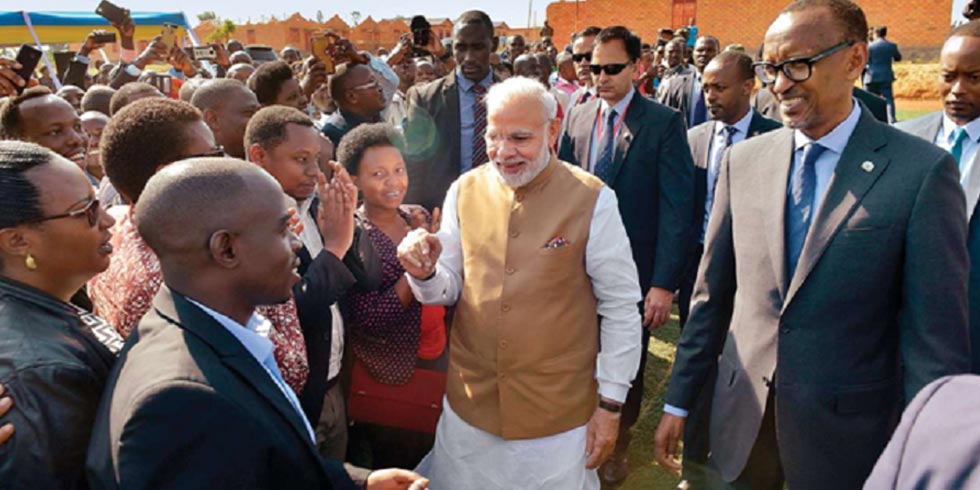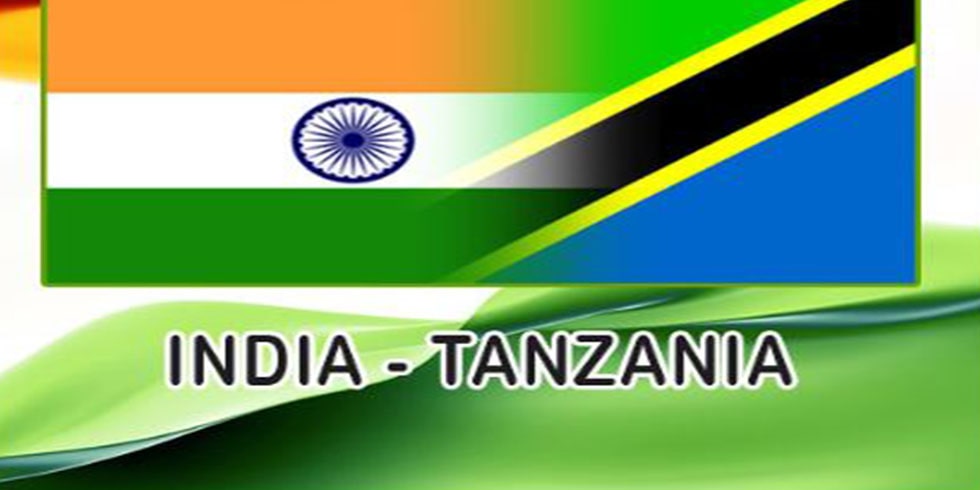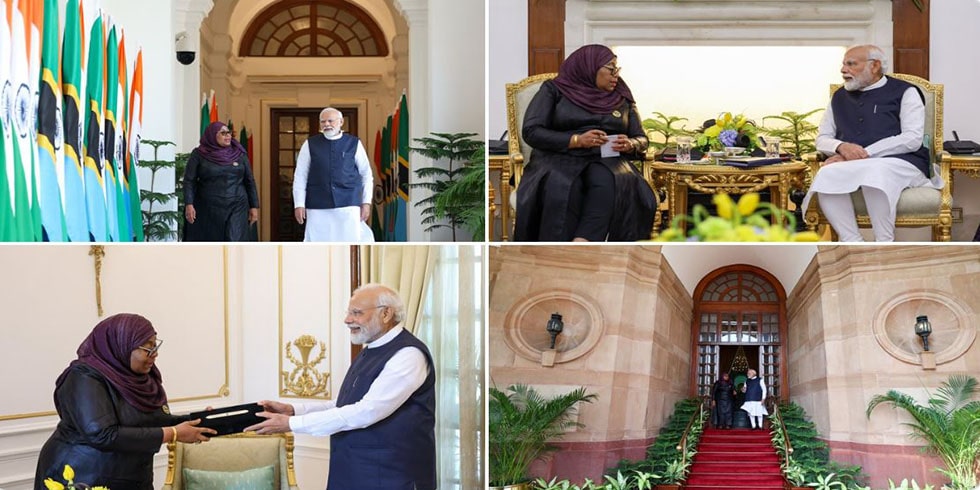The historical ties between India and Africa have resurfaced in recent years, and there are compelling grounds to believe that the alliance will be mutually beneficial. In reality, Prime Minister Narendra Modi's government has made measures in recent years, particularly during the COVID-19 outbreak, that signal India's desire to become Africa's largest partner.
India now has a strategy with distinct guiding principles and areas of focus, based on a rising trade and investment portfolio. This approach relies heavily on the private sector, notably in sectors like skill and capacity-building, health care, agriculture, and the digital revolution. Furthermore, in most of its engagements with nations like Kenya and South Africa, India has made maritime security a fundamental pillar, demonstrating the seriousness of its Africa policy pivot.
But why would India care about Africa? Africa's current megatrends are favourable to India's commerce and investment in the continent. Africa's substantial working-age population, increasing middle class, and considerable service sector all contribute to value-added trade and investment connections. Consumer-driven goods such as agribusiness, apparel and clothing, pharmaceuticals, and automotive components are potential areas for India's foreign direct investment (FDI), and Africa is putting in place the appropriate rules of origin to ensure their optimization through the African Continental Free Trade Area (AfCFTA). Experts anticipate the African Continental Free Trade Agreement, which is currently in place, to stimulate trade and investment, value chain development, and industrialisation throughout the area.
The agreement is beneficial not just to Africa, but also to the rest of the world. Simultaneously, it would create a united continental market that Indian enterprises will be able to readily access and tap into, thereby expanding the extent and depth of India's involvement with Africa. In addition, India has a lot of room in Africa: Africa, for example, accounted for only 15% of India's entire external investment stock between 2017 and 2019. Mauritius, which is frequently used to reroute investments to third countries due to its favourable tax laws, accounted for 82 percent of that total over the same time period.
In a similar line, the knowledge transfer/lessons learned from India's biometric digital identity scheme, Aadhar, are important for African countries. Digital identity, if properly implemented, may help to foster good governance by providing clear institutional mandates and accountability mechanisms, among other things. Furthermore, sharing legal and technical breakthroughs in digital identification might aid Africa's optimization of digital services trade and integration, an area in which India is regarded as a global leader.
The establishment of a robust Africa-India collaboration might be hampered by differences in governance systems within the continent. Unlike India, which has a uniform governance system, Africa has a diversified and heterogeneous governance structure. Multilateralism's ideals, on the other hand, can be vital in achieving a mutually beneficial partnership between India and Africa. Such collaboration will be critical not just in addressing global concerns, but also in identifying solutions that benefit both African and Indian people.










Add Comment